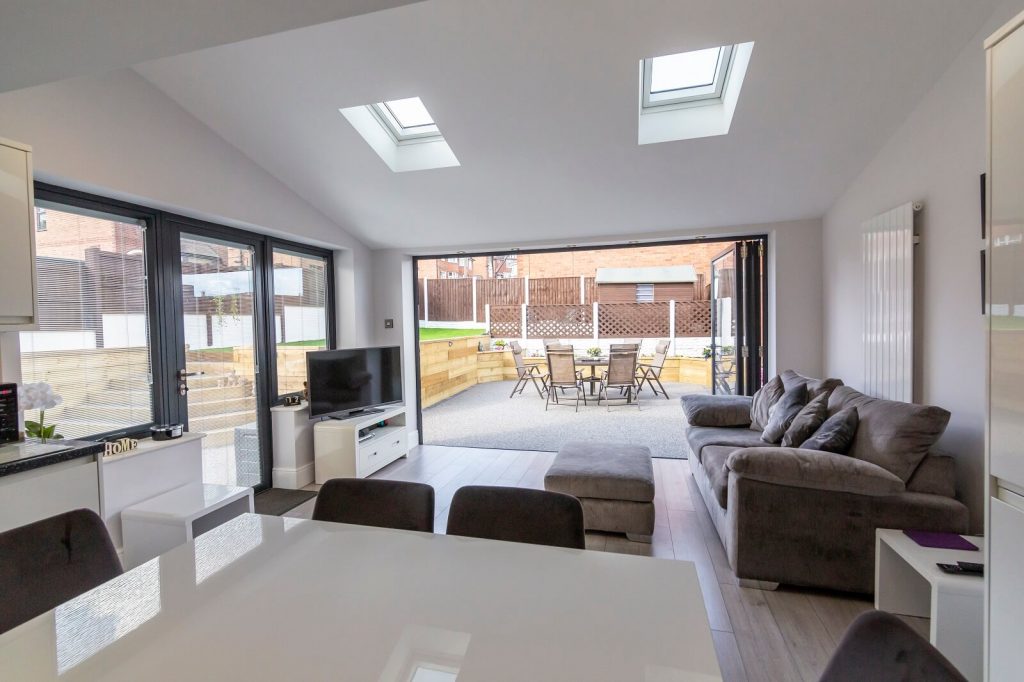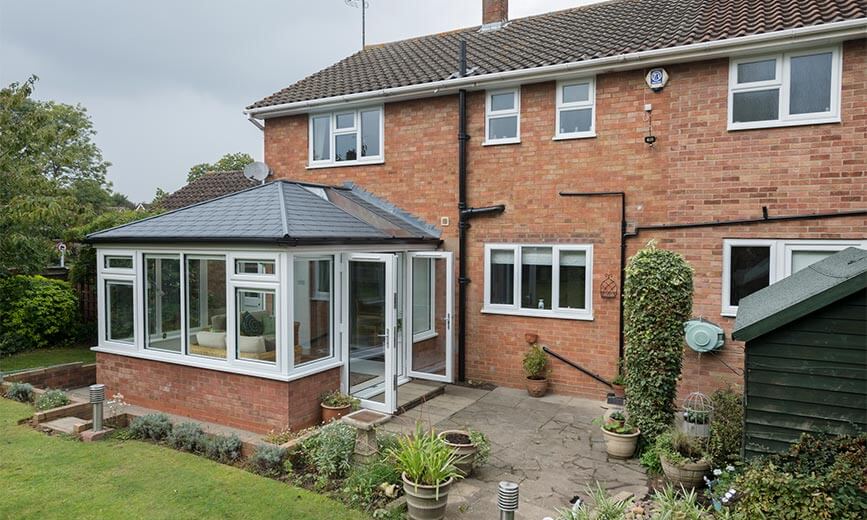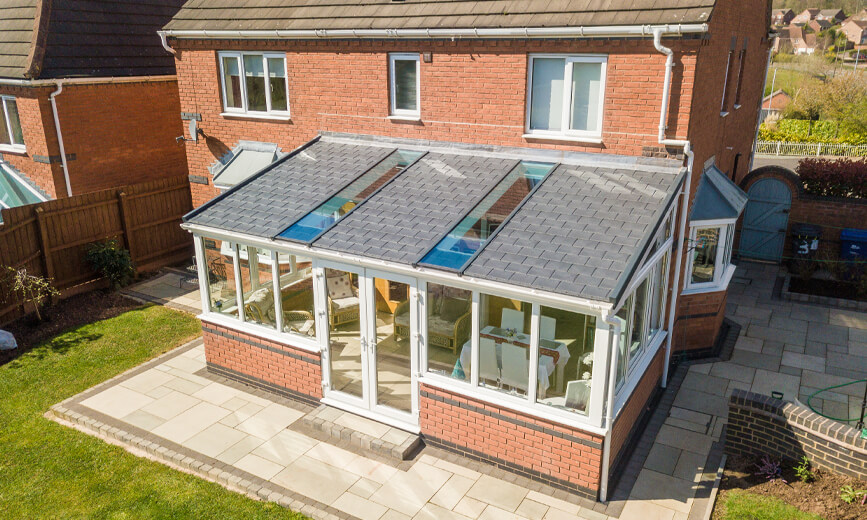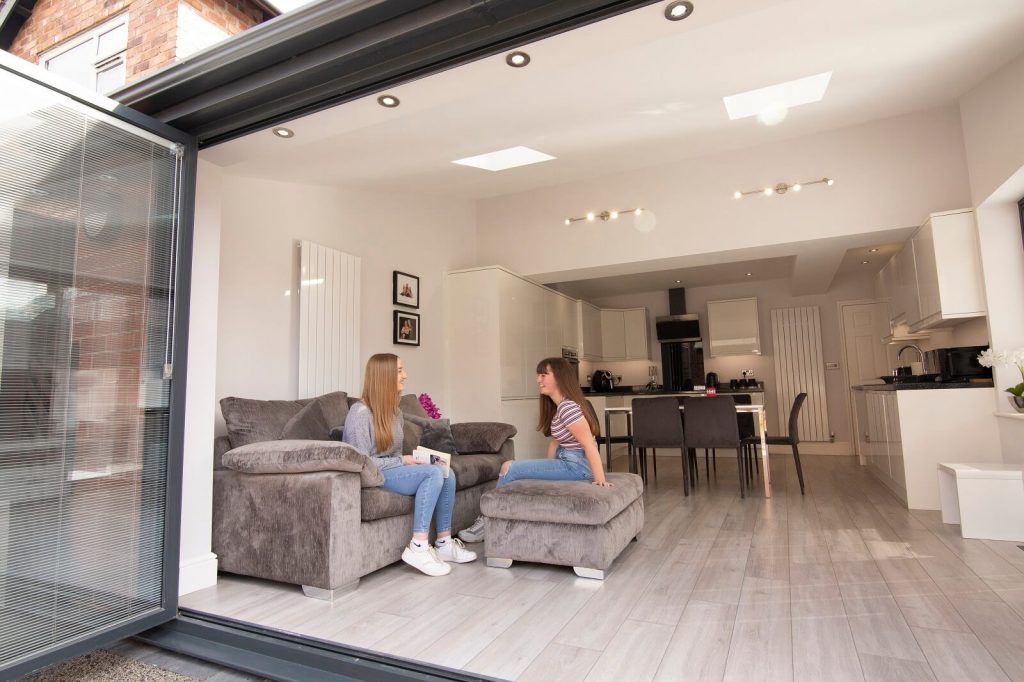There are many reasons to consider building a home extension. A growing family, more space to work from home, a new area for relaxing or entertaining, extensions can have all sorts of uses, they really have no limit. Some people, however, may be put off extending their home because of the cost or disruption to their home routine. So, is it better to extend your home or move? Let’s take a closer look.
The benefits of building a home extension

Extending your home can unlock many benefits. Here are some of the main advantages of building a home extension.
Space and Customisation
Home extensions are designed to provide more space and enhance your standard of living. This new space can be designed to perfectly meet your needs.
Many homeowners say that one of the main benefits of extending your home is the opportunity to customise the space to perfectly suit your lifestyle. Whether it’s adding a new kitchen, an extra bedroom, or a home office, an extension can be tailored to accommodate your specific requirements.
Home extension options
Another great benefit of extending your home is the different options available. At Lifestyle Windows, we offer all our customers the following home extension options:
All our extensions are professionally designed and installed, and we work closely with all our customers to ensure that your home extension perfectly meets all your requirements.
Moving vs extending, which is best for you?

Whether you decide to extend your home or move house will depend on your personal circumstances. There are, however, various things to consider when comparing the two options.
Cost of moving vs cost of extending
Moving to a new home comes with all sorts of costs: estate agent fees, legal fees, stamp duty, and moving expenses, not to mention the cost of the new property itself. Depending on the property market, these can add up to a substantial amount, often running into the tens of thousands of pounds.
The cost of building an extension varies widely. It can be affected by various factors including the size, complexity, and materials used in the extension. The cost of extending your home, however, can generally be more predictable and controlled compared to moving house. It’s crucial to obtain multiple quotes from reputable companies to ensure you’re getting a fair price. Additionally, consider the potential need for architectural designs, planning permission, and consulting with local authorities.
Emotional considerations
Moving can be emotionally taxing. Leaving behind a home filled with memories can be difficult, and the process of adjusting to a new environment, establishing new routines, and forming new social connections can be stressful, especially for families with children.
Extending your current home allows you to stay within a familiar community, maintain established relationships, and avoid the upheaval associated with moving. You get to keep the sentimental attachment to your home while benefiting from the extra space you’re craving.
Market Availability
The housing market may not always have properties that meet your criteria, especially in terms of location, size, and budget. Extending your home avoids this issue, allowing you to remain in your ideal location while enhancing your living space.
The process of selling a house, buying a new one, and organizing a move is a considerable time investment. It’s often fraught with delays and uncertainties, requiring significant time off work and other commitments.
While building an extension is also time-consuming and can be disruptive, the process is often more manageable because it happens gradually and onsite. With proper planning and working with reliable contractors you can easily avoid many of the inconveniences of relocating.
Do you need planning permission to extend your home?

Most home extensions do not require planning permission. If you live in a listed building or conservation area property, however, you will need to contact your local authority to obtain planning permission. For properties that are not affected by their location or historical character, you can extend without planning permission if your extension meets the following criteria:
- The extension is not bigger than half the property’s garden
- The highest point is not higher than the original property’s roof
- The extension’s eaves are not higher than the original property’s eaves
- The extension does not extend forwards from the original property
- The design does not include a balcony, veranda, or raised platform
- The existing property roof has not been altered
- The extension does not have a chimney, flue, or vent pipe
If your extension meets all these points, you will not require planning permission.
Will an extension add value to your property?

Adding a well-thought-out extension can significantly increase your home’s market value. However, it’s essential to do some research to ensure that your extension adds more value than it costs. Overdeveloping in an area where house prices are lower might not yield a return on investment.
You should also consider why you’re extending your home in the first place. If you’re not planning to move in the near future, you should focus on how the extension will improve your home life and not worry too much about adding value.
If you’re settled and plan to stay in the same location for the foreseeable future, extending makes more sense. However, if you foresee lifestyle changes that might require a different living setup, moving might be the better option.
As you can see, extending your home is a great way to enhance your living standards. If you’d like to find out more about your extension options, contact Lifestyle Windows today. You can call us on 0800 783 6502 or send us a message online and we’ll get back to you as quickly as possible.
